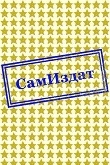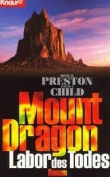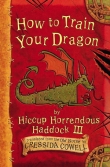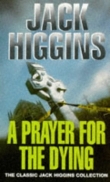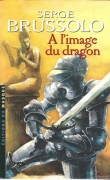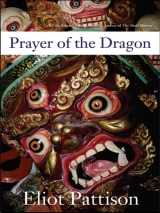
Текст книги "Prayer of the Dragon"
Автор книги: Eliot Pattison
Жанр:
Полицейские детективы
сообщить о нарушении
Текущая страница: 21 (всего у книги 24 страниц)
Chapter Thirteen
Shan did what he could for the mayor of Little Moscow, offering him water from the bottle Yangke refilled from the spring below, wiping the blood from his face as he slipped in and out of consciousness. A quick scan of the clearing behind him showed two nearly identical blood patterns, sprays with the force of spurting arteries behind them, at each end of a low mound of heavy rocks.
“Tell me what happened,” Shan said as he wiped Bing’s brow. Hostene had ripped two strips from his shirttail and wrapped them around the stumps of Bing’s arms.
“When it happens,” Bing murmured with a dreamy gaze, “you’re not real anymore.
Shan considered the words, trying to understand if Bing was speaking of himself or of the one who had severed his hands. “Was Abigail here?” he asked.
Bing’s mouth twitched. Had he any strength left, he would have grinned mockingly. “She watches,” he said in a hoarse whisper.
“She doesn’t care. Living with the gods, it’s all playacting.”
Shan shot a worried glance toward Hostene.
“How did this happen to you?”
“I was exhausted. I fell asleep. I woke to find him standing over me, grinning, singing one of his damned songs. Before I could speak, something hit me on the back of the head. When I came to there were rocks on my arms, so I couldn’t move them. He had already cut off my left hand when. .” Bing drifted off.
Shan stepped into the little clearing behind him. It seemed like Bing had lost gallons of blood. Even at this altitude, small flies had located it.
He dripped water into Bing’s half-open mouth. “The young miner, earlier this summer,” Shan said as Bing opened his eyes. “Did you kill him, too?”
Bing struggled for his answer. “Define kill,” he whispered.
“Let’s define it this way. Last year you killed a miner, then put his partner’s chisel in his back to show to Hubei, your witness.
The miner had been threatening to undermine Chodron’s business structure, and you had to show you were worthy of becoming the miners’ leader. The perfect answer was to kill him and blame his partner, the man you chased away. Placing the skeleton on the grave wearing the partner’s ring was truly inspired. But then Thomas started telling everyone that he could tell the cause of any death, even what caused a skull fracture. And you must have inflicted such a hard blow to the miner’s head that the weapon would have been obvious as soon as Thomas saw the skull. A hammer leaves a distinctive round indentation when there’s a lot of force behind it. You had to dig up the bones of the man you killed and dispose of them.”
“No miner would go onto that ridge. It was haunted,” Bing said, with a low whistling sound as he inhaled.
“But Thomas was ready to study every bone on the mountain for his project, especially if it might belong to a murder victim.”
“You never tried to go up there,” Bing added. “Why? I was hoping, watching. I could have killed you a dozen ways up there and everyone would have blamed the ghosts.”
“I didn’t need to,” Shan explained. “I’ve seen old burial caves before. I’ve seen what people like you do to them. One man had already died up there. Chodron was so suspicious he sent that farmer to follow you. No doubt he would have been one of your victims too, if the lightning hadn’t killed him first.”
“I was going to show them the skull of some old saint and say it was you. Push a leg bone into one of your old boots. They would have believed me, after everything else that’s happened.”
“A burial cave,” Shan said, “contains lots of old bones. And it’s a perfect hiding place for treasures, like the gold you had begun to buy from the miners without Chodron’s knowledge.”
“How was I supposed to guess she’d go up there looking for her damned gods? There is no evidence left,” Bing added in an oddly defiant tone.
“Because even those old bones became liabilities when Thomas announced he could tell the old from the new. He would have proven your story about the revenge of the ghost was wrong.”
“The little prick. One of those teacher’s pets who always has to show off how much he knows.
“They have artificial hands for amputees,” Bing said with sudden malice. “I’ll get ones with electric choppers. I’ll come looking for you, Shan.”
“You could have just sent Tashi away,” Shan continued. “None of this had to happen.”
“Tashi was the reason it all started. It would have been ungrateful to simply order him off the mountain. Worse, it would have been untidy.”
Shan paused, trying to understand. Bing’s breath began to rasp. He coughed. His breath came in short, shallow gasps. His lungs were beginning to fill with fluid.
“Tashi hadn’t a clue about keeping secrets.” Bing’s throat rattled. “The moment the fool appeared on the mountain, I knew there would be trouble. His services had already been bought and paid for. I gave him a chance, but he couldn’t stay away from vodka. We did him a favor, considering what might have happened.”
“Like the gratitude Rapaki showed you?”
“Too many years with those old Buddhist books, I guess. Nothing was real to him anymore. Everything was a symbol. He would hallucinate sometimes, talk to the paintings, stop suddenly and start speaking to a rock.” Bing’s breathing became labored. “He decided I became. . one. . in the end.”
“A demon,” Shan said, filling in for him. “Even though it was you who explained about demons to him last year.”
“He was like a damned cat, appearing out of nowhere, never making a sound unless he was telling his beads. I had no idea he was there, watching last year when I killed the miner. I had to think fast. The man was down but still breathing. I told Rapaki, Quick, help me get him to the painting of the old saint. I knew there was one close by. I said I had a prayer, given me by a saint, which had special powers near the old paintings, a way to identify a demon in human form. If I said the magic words, and the man was actually one of the demons who opposed the gods, then a red eye would appear on the man’s hand.”
“Your laser pointer,” Shan said with a sigh. “Ni shi sha gua.”
Bing gave a hoarse laugh, which triggered a fit of coughing. “I hid it in my hand and said the magic words in Chinese. You should have seen his face that first time, when that miner’s hand lit up with a demon’s eye. Rapaki was terrified. But then he began to smile. He ran away, and I thought that was the end of it. A few minutes later he showed up with that old ritual ax.”
“And now someone has borrowed your laser pointer.”
“Go any further and it will happen to you,” Bing vowed. “Soon everyone you know will have no hands.”
Shan ignored him. “It’s the new age indeed, Bing. High-tech demons. And thieves no longer know the meaning of honor. No loyalty. No gratitude,” Shan added, with a gesture to Yangke.
Bing weakly raised his brows in query.
“You never thanked Tashi’s friend. He didn’t tell Chodron about your lie. He didn’t tell him that you knew where two tons of gold, mined centuries ago, lay near the top of the mountain.”
Bing made an effort to push himself up. He rolled on top of Shan, who fought for a moment, then grew still as he realized Bing no longer resisted, realized the sour breath no longer came from Bing’s mouth, inches away from his head.
“He’s dead,” Hostene declared, and with Yangke’s help lifted the body from Shan.
They helped him to a nearby stream, where he thrust his face into the frigid water. Then, with gravel from the bed, he cleansed his hands and arms until the skin stung. When he was clean, to his surprise, Shan found he was hungry. As they ate, they debated what to do with Bing’s body. Yangke favored leaving Bing spread out by the gateway, to become a skeleton on the pilgrim’s trail. Hostene was inclined to shroud him in the blanket and heave him over the cliff. In the end they wrapped him in the blanket and covered him with rocks in the blood-soaked clearing, though not before Shan had studied the stumps of his arms. Each hand had been severed with two strikes. Each had left the same small nick in the bone.
They removed Bing’s shirt after Shan searched the pockets, ripping it into squares that Yangke inscribed, using a stick and Bing’s own blood, then left the prayer flags anchored with the burial stones. One more shrine to a demon.
“If he had followed the pilgrim’s path,” Yangke declared in a hushed voice, as he and Hostene pushed up the trail, “he would have seen who was lying in wait on this side of the passage.” It was Bing’s only epitaph.
“We can’t leave like this, Hostene,” Shan called to the Navajo’s back.
Hostene halted. Only Yangke turned, confused.
“We can’t go forward like killers,” Shan said.
Hostene leaned heavily on his staff. “You sound like Lokesh now.”
“We can’t go forward,” Shan repeated.
“You saw what happened to Bing,” Hostene said. “I don’t know what to expect now. One person alone could not have done that to him. Someone knocked him out from behind.”
He was afraid that Abigail was involved.
“I don’t know what to expect either,” admitted Shan. “But we know what to expect of ourselves.”
Hostene closed his eyes a moment then walked forward without bothering to see if the others followed him. Their silent procession reached the cliff and he lowered his bag and staff, reached inside his shirt, and pulled out Bing’s gun. “My uncle once told me some of the sacred mountains felt empty to him, as if the gods had left them, because so many men came with firearms to hunt the animals there.” With a long underhand throw he launched the pistol into the air. They watched it fall and get lost in the shadows at the base of the cliff.
They climbed now with grim, silent determination, up steep trails, bracing themselves against powerful downdrafts. They paused at every painting, twice following directions set out in the form of the little footprints and the outlines of sacred objects. Shan and Yangke had to pull Hostene away from a painting surrounded by chalk marks, whose deity, he insisted, resembled one of the Navajo holy people.
When they reached a ten-foot-wide chasm over which two thick yak-hair ropes had been tightly strung overhead, they hesitated.
“I’m not trusting my life to a four-hundred-year-old rope,” Hostene protested.
“It’s not that old. The lamas maintained the kora until they died. And it’s made of yak hair, which lasts despite the weather.” With a businesslike air, Yangke extracted the Y-shaped stick from the bag he carried, straddled the rope with it, grabbed each end in a hand, and slid across, dangling over several hundred feet of emptiness. He tossed the stick back to Shan as Hostene extracted the stick from his own bag. In another minute, both Shan and Hostene were across.
They halted at a narrow canyon intersected by half a dozen trails, each with a small painting of a demon at its entrance.
“Which one?” Yangke asked in a chagrined voice. “We could lose hours going down false trails.”
But Hostene pointed to the flat face of a boulder on which images had recently been drawn in chalk. He dropped to his knees in front of the drawings. “She has done the work for us,” he said. He began to explain how his niece had been trying to correlate Navajo symbols with the primitive symbols on the paintings at the trailheads.
“But what does it mean?” Yangke asked.
“Hunchback God,” Hostene said, and looked up. “The mountain goat god, that was the last one she drew, as if that was the explanation she sought.”
Shan walked in a semicircle along the trailheads. “Only one of these shows goat tracks,” he reported. Taking that trail, they soon reached another pilgrim station, with a small waterfall and beds of moss marked recently by boots.
Where the trail was obvious ahead Hostene pressed forward alone. On a sun-bleached rock with a view of the surrounding ranges for dozens of miles, they found him sitting cross-legged, stripped to the waist, his skin rubbed with dust, in his hand the little leather bag that contained his sacred soil. Yangke clutched his beads and lowered himself into the lotus position. Shan realized they had barely spoken above a whisper all day. It was as if, having left the gateway where Bing died, they had entered a temple where voices should not be raised.
But Shan, gnawed by his ever-present worry for Lokesh and Gendun, could not find a prayer within himself. He sat apart and arranged bits of gravel before him to randomly construct a number for the Tao te Ching. But for the first time in his life, he kept losing count, trying and failing, as if the book in his mind had closed. Instead, he was visited by memories of Gendun in chains, of Bing squeezing him without hands. He kept remembering a note left by an aged lama whom Shan had discovered sitting on a high ledge by a work site the first year of his imprisonment. Shan had gone after the lama after seeing him slip away, hoping to find him before the guards did. He had found the lama-naked, smiling, but dead, having written words with a charred stick on the rock beside him. His death poem read, All I have left behind is the water that has washed my skin.
When they emerged later onto a high windswept ledge where several poles were anchored by cairns of heavy stones, Yangke pointed out the threads attached to each, still whipping in the wind. Once they had been prayer flags.
“There!” Hostene said, and trotted to the last of the poles, Shan following behind. It bore a new flag, a red bandanna with flowers printed on it. Written over the printed pattern, in black ink, was a prayer to the Compassionate Buddha. He eagerly scanned the mountain above. “She’s still safe!” he called out, and pointed to a small solitary figure on an exposed shelf of rock high above. It could have been anyone but Hostene was convinced it was his niece.
“It doesn’t matter now,” said a downcast voice. Yangke had arrived at their side. The figure in the distance darted from view. Shan gazed at Yangke in confusion. A rumbling in the distance grew in volume. Shan’s heart sank. By the time he gathered his senses and started pulling Hostene toward the shadows a helicopter was already there, screaming past them, hovering as if searching for a landing place, then shooting around the head of the rock.
A full armored squad could fit in the helicopter, and Ren was unlikely to arrive with less. They would have automatic weapons, grenades, sophisticated detection devices, Shan explained. The sound of the machine diminished, then sharply increased, indicating it had deposited its load somewhere nearby and ascended again. At least the knobs would take Hostene and Abigail off the mountain quickly. There would be doctors. Yangke, without papers, should try to hide, retreat, and reach Lokesh and Gendun. Shan might be a sufficient meal to satisfy Ren’s appetite for a day or two. But Drango village was doomed. Shan knew how to resist interrogators, might hold out for maybe a week or even two. But eventually, whether they resorted to drugs, electricity, or just batons, he would be forced to speak. He was the one Ren sought. And if Shan did not fall into his trap, Ren would ferry more loads of soldiers to the mountain.
But when Shan reached the clearing where the helicopter had landed, he found only a solitary figure in black with a pack at his feet. Dr. Gao was inspecting a painting of a protector demon.
“I haven’t sent his body back,” the scientist announced in a flat voice. “It still lies in that morgue in Tashtul. I sat with it before I left. Every day I write a different letter to Thomas’s parents. Every day I rip it up. ‘I regret to inform you that your only son was laid out on a stone and butchered.’ ‘I am saddened to report that our plans to land a family member on the moon have been canceled.’ ‘I am sorry but the outlaws who run the far side of the mountain have taken our young prince.’ ”
“I supposed you would phone them.”
“I can’t. Heinz will do it when he returns. Heinz is good at such things.”
“How did you know to come to the summit?”
“You told me, before. If the American woman was still alive she would keep going up the mountain, you said. This has always been about that American woman, hasn’t it? Abigail. It started with her.” Gao’s voice was that of a rational scientist speaking about a colleague’s expedition.
But it wasn’t about Abigail, not for Gao. It was about Thomas, and the utter failure of a man who, in all his esteemed career, had never known failure.
“I don’t know what you expect, Gao.”
“My expectations,” Gao sighed, “have meant very little lately.” He pointed to the demon, and a chalk drawing of a thunder snake beside it. “Explain this.”
Before Shan could do so, a low, steady voice rose from behind them. Hostene and Yangke had joined them. “The world begins with thunder,” Hostene said. “The early Tibetans said so. The Navajo said so. Abigail came to confirm this with the deity that lives inside the mountain.” Gao cast a worried glance at Shan. Hostene was beginning to sound like a lama.
Gao turned to the Navajo. “The altitude is affecting your brain, Hostene. I brought medicine for that.” Then he faced the painting. “And where exactly does this earth deity live?” He seemed to fear the answer.
“In the paradise at the top of the mountain,” interjected Yangke.
Gao looked up, not toward the summit but to the east, as if wondering if he might summon his helicopter back. Shan set off up the trail.
As they walked, Gao quizzed Shan relentlessly about his experiences on the mountain, making him repeat the puzzles they had encountered before he heard their solutions, then falling silent as Shan told him about Bing’s death.
“Did he know my nephew?”
“He did.”
Gao nodded. “Thomas would not have been drawn into a trap by a total stranger.”
“Your nephew knew more people on the mountain than you might think.”
“I keep reminding myself,” Gao observed in a brittle voice, “that I live a fairy-tale life in a make-believe castle, unconnected to the world.”
“When I said that,” Shan offered, “I did not intend to hurt you.”
“You are an escaped prisoner with a meaningless life,” Gao replied in a hollow tone. “How could you hurt me?”
“I meant-”
Gao interrupted with a raised hand. “No more.”
“No more of that,” Shan agreed. “But now I have a question for you. Did you bring your satellite phone?”
As Hostene and Yangke ate some of the grain bars Gao produced from his pack, Shan and Gao sat on a rock and tried the number for Heinz Kohler. Gao held the earpiece so Shan could hear. An automated reply reported that the receiving phone was switched off.
“Where does Heinz stay when he goes to Lhasa?”
“Always with an old colleague who retired there. They discuss new reports in the scientific journals.”
“Do you have that number?”
“Our satellite phones have always been sufficient.”
“Except today. Call your office in Tashtul,” Shan said. “Your office manager probably has some way to contact him in emergencies.”
Gao frowned, then pressed a number on the phone’s memory and handed it to Shan. The conversation was short. Kohler’s emergency number was that of the most expensive hotel in Lhasa.
“Mr. Kohler has gone to the border on business,” came the soft female voice at the hotel’s reception desk.
“Did he leave a forwarding number?” Shan asked.
“He will be back in a few days,” the woman said. “Is there a message?”
“How often does Heinz go to Lhasa?” Shan asked Gao.
“Once every month in the warm weather. There are always details of shipments to be arranged.”
“That night in Tashtul when you said Heinz knew about Public Security,” Shan asked, “what did you mean?”
Gao stood and fidgeted with the zipper on his jacket. “We always referred to it as his vacation. It was nothing really. A misunderstanding. He was pronounced rehabilitated, the record wiped clean.” Gao began walking up the trail.
Shan followed. “You mean he had been in a Public Security prison.”
“Half the great men in Beijing have had such episodes. A rite of passage.” Gao stopped. “A foreigner like that, trying to succeed in Beijing, surpassing nearly all his colleagues. What do you expect? Jealousy was inevitable.”
“I need to borrow your phone,” Shan declared.
“Impossible. It holds many secret numbers.”
“Just one call, to the colonel who runs Lhadrung County. You can sit beside me. And I need the name of the scientist you said Heinz stays with.”
Gao did not reply, did not even look in Shan’s direction, as he reached into his pocket and handed Shan the phone before stepping to the edge of a nearby ledge.
Shan was gripped by the cold fear he always felt when he heard the voice on the other end of the line. They weren’t friends, they weren’t allies, merely two men who had been chewed up and spit out by Beijing. After a difficult opening, during which the colonel threatened to hang up, then warned Shan that his photo was being distributed by one of the most rabid Public Security officers in all of Tibet, it took less than five minutes to explain what he desired and another five minutes before a much friendlier, female voice returned with the information he had sought. The colonel’s matronly assistant relayed the requested information, then recited the phone number twice. Shan gestured for a pen and wrote it on a slip of paper. “Have a wonderful day,” she called out as he disconnected.
He went to Gao’s side and held the phone as Gao had before, so both could hear. Shan asked for Heinz Kohler. “Mr. Kohler has gone to the border on business. He will be back in a few days. Is there a message?” They were not only the same words but it was the same young female voice they had heard on their first call to Lhasa.
“I don’t understand,” Gao said after Shan had hung up.
“I asked about his scientific colleague. Then I asked if there was a private, confidential listing for a Heinz Kohler residence in Lhasa. His old colleague moved to a retirement home on the southern coast over a year ago. The number the colonel gave me was the private line of the Kohler apartment in Lhasa. Only nothing is private to a man like the colonel. Heinz has an apartment at the top of the hotel. The woman who spoke to you wasn’t working for the hotel, she has an arrangement with the switchboard. She’s living in Kohler’s apartment.”
Gao snatched the phone from Shan’s hand and without a word marched up the trail, which was turning into a wide causeway leading to another tunnel near the top of a high cliff.
Shan followed at a distance, recalling the words of the old groundskeeper, Trinle. The mountain sought people out. It was true. Here before him was the mystery of the murders, the mystery of Abigail Natay, the mystery of the lost gold, the mystery of Gao. The mountain had already dealt with the mystery of Bing. Shan looked up at the summit, surrounded by patches of snow. They were nearing the end of the climb. Somewhere between where he stood and the top, all mysteries would end.
The station at the top of the windblown section of trail might have been constructed as a classroom for Abigail. The walls of the high rectangular cavern, sealed at the far end, were smooth, covered with paintings, though only along the top of the walls, ending nearly eight feet above the ground. Below the paintings were more of Abigail’s own drawings, though not only Abigail’s. At least one other hand, which had written nearly illegible passages in Tibetan, was evident. Halfway down the cavern a rope hung from the ceiling. Yangke pulled it, producing the pleasing peal of a heavy bell chime.
“It’s a dead end,” Hostene declared. “A deception. We missed a hidden turnoff.” But he seemed in no hurry to leave as he paced along the walls, perplexed. Had his niece also been deceived?
Oddly, Abigail’s chalk marks looked faded, as if they had been there for years. As Yangke began reading the Tibetan words out loud, Shan fought mounting unease. Several cavities punctuated the upper walls, some like small bowls, others holes without visible ends. Light filtered through a perfect circle chiseled at the top of the rear wall, which displayed no paintings. Below it was a dark shelf, an opening that ran the width of the cave, nearly two feet high. Shan pointed to a chalk mark he had never seen before, a circle divided by a horizontal line through the center, vertical lines running down from the center line to the edges.
“It’s an old sign,” Hostene said, “seldom used. I think it means House of Water.” He looked at Shan and shrugged.
Shan studied the way the living rock had been carved to make two pillars at either side of the narrow entrance, the stone around them chiseled away to make two high concave hollows in the entrance wall. He picked up two pieces of gravel and tossed one into each of the hollows. The one on the south side bounced back, the other disappeared without a sound. He looked up to see Gao standing outside the chamber on the entry path, which for fifty feet had been laid with flat, tight-fitting pavers. Gao stared over one edge, where the low wall that lined the paved portion of the path had crumbled away.
“What are those?” Gao asked, pointing to a heap at the bottom of the high wall they stood on.
“Sticks,” Shan suggested. “When a tree gets blown off the slope above it ends up down there eventually. They tumble to the bottom and the sun bleaches the sticks white like that.”
“Except we have climbed above the tree line,” Gao said in a worried tone.
The wind began to pick up, bending the sparse clumps of grass that grew between the stones.
The moan came abruptly, starting as a low humming sound, then quickly elevated in pitch and volume to an unsettling noise that seemed to come from the rock wall at the end of the chamber.
“A throat chant!” Yangke gasped. “It’s as if the mountain is chanting!”
It did seem as though the rock itself were speaking, like the beginning of one of the eerie prayer chants practiced by some of the old monks. Gao pointed to the circular hole at the end of the chamber that Shan had noticed earlier. Shan spoke into Yangke’s ear and a moment later Hostene and Gao were helping him up onto Yangke’s shoulders. When he straightened, his head was level with the hole above the long shadowed shelf. The sound grew so intense that he put one hand over an ear, using the other to steady himself as he studied the hole. Then he signaled for his friends to lower him.
“There’s a wooden sleeve fitted inside the hole, with thin slats like reeds in it,” he reported. “The hole widens past the sleeve. It’s a sound funnel, and its been tuned to make this sound.”
“But what is the sound?” Gao asked. “Why that sound?”
Yangke and Shan concentrated on listening.
Yangke’s eyes lit with realization. “A seed sound,” he said, referring to one of the root sounds used in Tibetan ritual. “Vam!”he said. “It is the seed sound Vam.”
Shan cocked his head, telling himself it was not possible. But the sound was unmistakable now. Each gust renewed the syllable. The sound mesmerized the four men. The monks of five centuries past were speaking to them.
Hostene, his expression of wonder growing, clamped his hands over his ears. Gao stared not at the hole above now, but at the entryway. Shan pulled Yangke into a corner, where the sound was less intense.
He asked, “What does it signify?”
“The color blue,” Yangke said, “And the direction north. And-” The sound grew louder now, accompanied by something new, a low rushing rumble.
The image of the white sticks below flashed through Shan’s mind. “Run!” he shouted, pushing Hostene and Gao forward, pointing Yangke toward the entry. They were halfway down the chamber when the shelf below the hole erupted. There was indeed one more meaning to the seed syllable. Water.
It burst out of the wall with the force of a tsunami. As the makers of the chamber intended, they would not have time to run down the path to safety below. Shan pushed Yangke into the shadow behind the north pillar. The Tibetan understood instantly, and pulled Hostene into the narrow cleft before the wall of water reached them. Shan grabbed the collar of Gao’s jacket as the scientist was swept off his feet, then braced himself in the opening of the cleft. He had to extract Gao from the torrent, he had to get them both higher, for the water was rapidly rising and would not stop, he knew now, until it reached a level just below the old paintings, eight feet from the floor of the chamber.
He pulled on Gao’s collar, not daring to use both arms for fear of losing his balance. By the time he had pulled Gao inside the cleft, their heads were under water. Blind in the swirling blackness, Shan let his feet lead him. They found a narrow step, then another, and another. He slipped, almost losing Gao. Then hands reached down and tugged him upward.
He found himself lying on the floor of another cave. He struggled to his hands and knees, his stomach heaving up the water he had swallowed, Gao beside him coughing up water too as Hostene slapped his back.
“They weren’t white sticks,” Gao said once he regained his breath.
“No,” Shan agreed. They were the flotsam of centuries of pilgrims who had not been so fortunate, the bones of what had been perhaps twenty or thirty bodies.
They spoke hurriedly, in tones of disbelief, comparing theories, until at last they understood what the ancient monk engineers had done. The bell. The bell rope would always be pulled by a pilgrim, for bells drove away evil spirits. But the rope not only tipped the bell, it activated a mechanism, releasing a cover over the wind funnel and then something else above, releasing a gravity-activated gate on a dam that connected to the wide opening at the end of the cave. The path had been paved at the top to endure the occasional floods without being washed away. The sidewall had not crumbled away but had deliberately been built that way, to make a death trap for those who were unlucky enough to be washed out of the cavern. They had found the missing spring melt, the water that had been diverted from the passageway they had used to enter the summit kora.
The excitement of their discovery, and of their survival, was soon replaced by the grim realization that all of their equipment, including that brought by Gao, had been swept away by the water. They had no food, no pilgrim bags, not even a butter lamp. A staff that Hostene had clutched during the ordeal and the contents of their pockets were all that remained. They took inventory. Gao’s phone. A flint. Two pocketknifes. A few pencil stubs. Several feathers Hostene had collected along the way. And, Shan knew, the secrets secured inside Hostene’s vest. Yangke, in his soaked clothes, starter to shiver, rubbed his arms, and looked at Shan expectantly.

